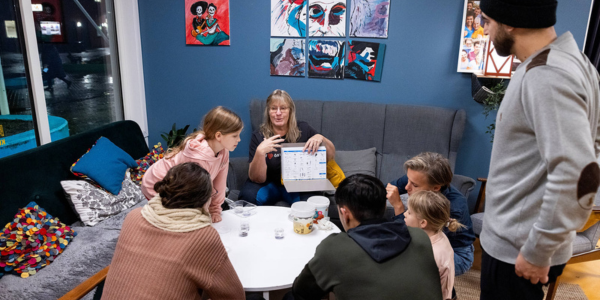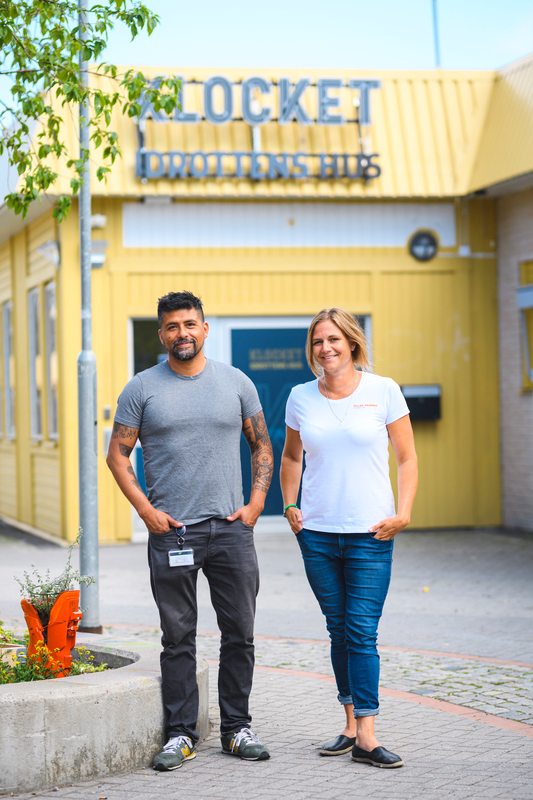In the fall of 2021, a celebration took place at the House of Knowledge in Klockaretorpet (also called ”Klocket”): a residential area in the city of Norrköping, Sweden. Representatives from the Municipality, Hyresbostäder (housing company), the police, the church, and of course residents from the area celebrated together with cake and coffee. The Swedish police had just released its annual list of vulnerable residential areas in the country, and Klockaretorpet was no longer on it. Let’s find out more about this neighbourhood transformation through sports, culture, and learning.


Transformation of Klocket
Five years earlier, in 2015–2016, the atmosphere was different. There were car fires, an open drug trade, stone-throwing at emergency services, extensive vandalism, and the district ended up on the police’s list of vulnerable residential areas along with over 60 other districts in Sweden. The few remaining businesses did not dare to stay in the center during evenings and weekends.
The unrest peaked with open confrontation between riot-equipped police and youths in the summer of 2016. The situation was extremely serious, and the sense of security among the area’s residents hit rock bottom. The challenging work of filling all empty premises with activities that could collectively reverse this destructive development began. A center once intended for commerce, services, and restaurants had gradually disappeared from the area, leaving behind a desolate center occupied by youths with extensive vandalism and open drug trade.

About Klocket
The residential area in Norrköping emerged between 1975 and 1985. Most residences are rental townhouses, but there are also some apartment buildings in the center. Property owners are Hyresbostäder and Heimstaden. There are also housing cooperatives.Reclaiming the community space


The work to reclaim control of the place and fill it with activities that would attract people to visit the center began. The answer was a cluster of activities in sports, culture, and learning. A venture that later proved to be a successful recipe. In today’s Klocket, there are various activities within this cluster. The Houses of Sports and Associations are open to associations needing adapted premises for their activities, for their members, and for those actively involved in the associations to receive help in running and developing their activities. There is also a “library” for borrowing sports and leisure equipment called Fritidsbanken, the municipality’s Culture and Leisure Office, and last but not least – the House of Knowledge, a place for inspiration regarding learning in all imaginable forms.
Today, Klocket is a completely different place than a few years ago. The number of registered crimes has decreased by two thirds, and the sense of security among the area’s residents has clearly and steadily moved in the right direction. Klockaretorpet is not listed on the national police list of vulnerable areas, nor is it defined as a “sports-weak area” by the sports movement.
Find out more
To find out more about this neighbourhood transformation through sports, culture, and learning, please contact Hyresbostäder’s coordinator through the Members Only Zone. If you are not yet a member of Eurhonet, find out about joining us.

Pictured: Caroline Bielkhammar, Neighborhood Developer and Marco Briones, Operation manager of the House of Knowledge
